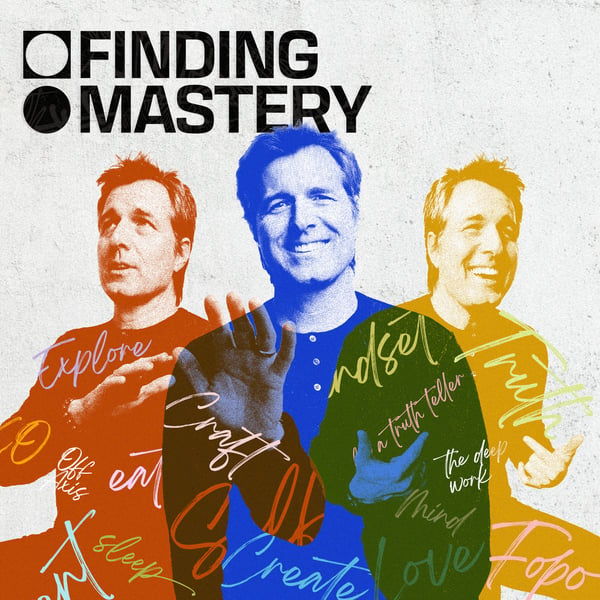The Psychology of Evil | Dr. Philip Zimbardo
Finding Mastery with Dr. Michael Gervais
Dr. Michael Gervais
4.7 • 1.7K Ratings
🗓️ 8 September 2021
⏱️ 91 minutes
🧾️ Download transcript
Summary
This week’s conversation is with Dr. Philip Zimbardo, a professor emeritus in psychology at Stanford University, and creator of The Stanford Prison Experiment.
Philip has spent over 50 years teaching psychology - he’s an absolute legend in the field.
He’s written more than 60 books and has over 600 publications (professional and popular articles, and chapters).
Among his books are: Psychology and Life textbook, Shyness, The Lucifer Effect, The Time Paradox, The Time Cure, and most recently, Man Interrupted.
His current research looks at the Psychology of Heroism, asking: “What forces push some people to become perpetrators of evil, while others act heroically on behalf of people in need.”
As founder and president of the nonprofit foundation, Heroic Imagination Project (HIP), he does trainings globally in schools, institutions, and businesses.
It would be impossible to cover all his work over the course of an hour conversation, but we discuss what gave him the idea to conduct The Stanford Prison Experiment and how that shaped some his future work which includes studying topics like: shyness, the conception of time, and heroism.
----
Please support our partners!
We're able to keep growing and creating content for YOU because of their support. We believe in their mission and would appreciate you supporting them in return!!
To take advantage of deals from our partners, head to http://www.findingmastery.net/partners where you'll find all discount links and codes mentioned in the podcast.
See Privacy Policy at https://art19.com/privacy and California Privacy Notice at https://art19.com/privacy#do-not-sell-my-info.
Transcript
Click on a timestamp to play from that location
| 0:00.0 | And in fact, on the morning of the second day, the prisoners rebelled, locked themselves |
| 0:04.9 | in their cell, refused to come out, cursed the guards, and that's when the guards said, |
| 0:10.8 | these are dangerous prisoners. |
| 0:12.8 | So that redefines everything, is that they're not students playing the role of prisoner or |
| 0:18.4 | guard. |
| 0:19.4 | They are dangerous prisoners. |
| 0:21.0 | And what do you do with dangerous prisoners? |
| 0:22.5 | You have to dominate them, and that's what we saw emerging. |
| 0:30.0 | Okay, welcome back. |
| 0:36.5 | Or welcome to the Finding Mastery podcast, I'm Michael Jervé. |
| 0:40.7 | And by trade and training, I'm a sport and performance psychologist. |
| 0:43.9 | And I'm fortunate to work with some of the most extraordinary thinkers and doers across |
| 0:48.2 | the planet. |
| 0:49.2 | And the whole idea behind these conversations behind this podcast is to learn from people, |
| 0:53.4 | to pull back the curtain, to explore how they've committed to mastering both their craft |
| 0:58.0 | and their minds. |
| 0:59.7 | Now our minds are flat out our greatest asset. |
| 1:03.1 | And if you want to learn more about how you can train your mind, this is just a quick |
| 1:06.5 | little reminder right here, to check out the online psychological training course where |
| 1:10.3 | we pulled together the best practices to meet that unique intersection of high performance |
| 1:15.6 | and well-being. |
| 1:17.2 | We walk through 16 essential principles and skills for you to train your mind. |
... |
Please login to see the full transcript.
Disclaimer: The podcast and artwork embedded on this page are from Dr. Michael Gervais, and are the property of its owner and not affiliated with or endorsed by Tapesearch.
Generated transcripts are the property of Dr. Michael Gervais and are distributed freely under the Fair Use doctrine. Transcripts generated by Tapesearch are not guaranteed to be accurate.
Copyright © Tapesearch 2025.

